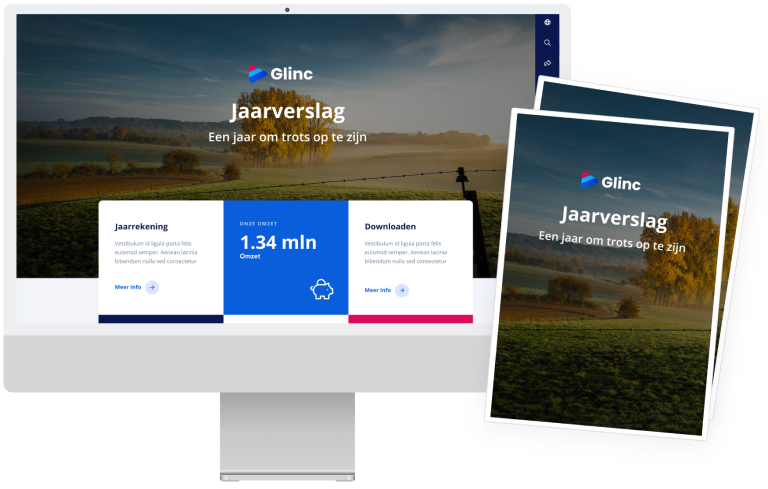Public interest is paramount
Public interest is paramount
Gasunie is wholly owned by the Dutch Ministry of Finance. How do each of these organisations experience their relationship, especially after a turbulent year like 2022? Helmer Vossers (director of the Financing Directorate, Ministry of Finance) and Ulco Vermeulen (business development director, Gasunie) look back and ahead. Helmer says, ‘Gasunie has gone through an incredible transition in the area of new forms of energy while, at the same time, they have responded vigorously to the current issues. That's a combination that's extremely hard to pull off.’

Response to Russian aggression
‘Looking back, you can say that Gasunie was already responding proactively before the Russians invaded Ukraine,’ says Helmer. ‘It emerged in October 2021 that it would not be possible to set up the LNG terminal in Brunsbüttel in Germany on a strictly commercial basis. We could, however, see the risk of being so heavily dependent on Russia. So, we jointly approached the German Ministry of Economic Affairs (BMWK) to see that the terminal would be built all the same and that Germany would contribute. Ulco and his team have sealed a fine deal.’ Ulco adds, ‘We usually manage to make projects commercially viable, but not in this case. Still, for the sake of the public interest, we could not give up.’ Helmer nods in agreement, adding, ‘Gasunie has made it clear that security of supply throughout the north-western European market is important to the company. Moreover, energy prices for Dutch households are also set on this market.’
Springing into action after 24 February 2022
‘Even after the invasion, we have seen that Gasunie feels a great responsibility both for security of supply in the Netherlands and the energy prices in Europe,’ Helmer continues. ‘Gasunie has worked incredibly hard to get the EemsEnergyTerminal completed. And don’t forget how they increased capacity at the Gate terminal either. Gasunie was the only organisation that managed to ramp up LNG import capacity in north-western Europe before the start of winter.’ Ulco adds, ‘A social crisis like this is unparalleled for our generation. We have analysed a lot and, above all, taken action. We received support from the Ministry of Finance and other ministries, politically, financially and operationally. The various commercial companies involved in this have given it their all, and hats off to them for their contribution.’
Infrastructure for the energy transition
Helmer says, ‘I also think it’s fantastic how Gasunie is handling the development of infrastructure for the energy transition, such as WarmtelinQ and the Dutch hydrogen network. ‘Hydrogen is set to play a major role in Europe. The financing of the hydrogen network has therefore been discussed a lot between Gasunie, our Ministry and the Ministry of Economic Affairs and Climate Policy.’ Ulco adds, ‘Together we have opted for an approach in which we invest in infrastructure proactively and at a high risk. This way we force a breakthrough in the chicken-or-egg situation the hydrogen market has been struggling with. We are also very proud of Porthos, the world’s first CCS project on such a large scale. Carbon emissions from Dutch industry are high; we can cut these drastically through carbon storage.’
CSR role model
Helmer says, ‘What the current Minister of Finance also considers important is corporate social responsibility. Minister Kaag believes that state holdings should take the lead in this. In my view, at Gasunie CSR already runs right through the company.’ Ulco adds, ‘We focus on our actual remit, but in such a way as to make as much positive social impact as possible. Our way of working has been based on the Sustainable Development Goals for years. I think this is also even more inspiring for our employees. We do not see CSR as a burden or a duty imposed by the Ministry: the SDGs are, by their very nature, a source of added value to our company.’
Making decisions in the public interest
Ulco continues, ‘Who is ultimately in charge, you ask? Of course, the Ministry of Finance has a lot to say, for example in terms of formulating our strategy and approving decisions. In very exceptional cases, the Ministry does not approve an investment. And that’s their right too: it is our shareholder after all. However, there are various ways to approach such an official division of roles. Helmer and his team do this in a positive, collaborative manner. It is a pleasant collaboration and that leads to better results.’ Helmer says, ‘I don’t feel like “the boss”. Ultimately, it is about the public interest; that’s what we’re focussing on together. There is real trust between the people at all tiers in Gasunie and the Ministry of Finance. That’s so valuable. Trust, that’s the ticket as far as I'm concerned.’

